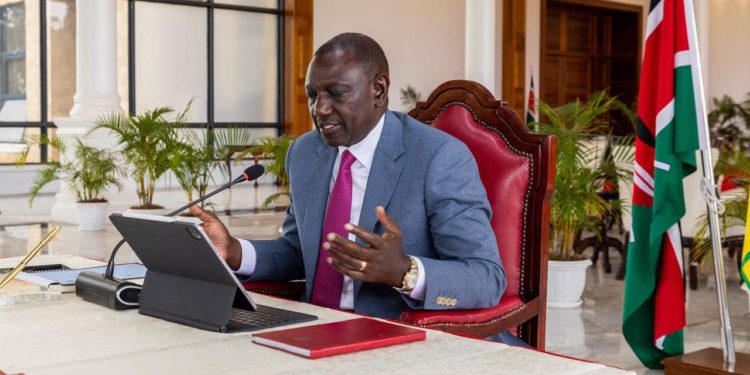Kenya’s healthcare system is set to undergo a significant overhaul as President William Ruto’s Cabinet ratified the transition from the National Health Insurance Fund (NHIF) to the newly established Social Health Authority (SHA), effective October 1, 2024. The reform is aimed at bolstering the Universal Health Coverage (UHC) pillar of the Bottom-Up Economic Transformation Agenda (BETA). The SHA will bring broader coverage for maternal and child healthcare, including prenatal and postnatal services.
Under the new scheme, coverage will extend beyond secondary school students to encompass all school-going children. The expanded coverage of the Linda Mama Programme will ensure that expectant mothers receive not only prenatal but comprehensive postnatal care. These changes aim to provide more holistic maternal and child healthcare, according to a press release issued by the Cabinet Office on Tuesday, September 17.
“The transition to the Social Health Authority marks a critical step in ensuring every Kenyan has access to affordable and comprehensive health services. The SHA will address gaps in the current system by extending coverage to the most vulnerable, particularly mothers and children,” the release stated.
Kenyans are urged to register for the new scheme through the dedicated channels: *147# or www.sha.go.ke.
The Cabinet’s inaugural meeting, chaired by President Ruto, signaled a broader commitment to enhancing governance, accountability, and efficiency in public service delivery. The meeting comes after an extensive induction programme designed to set the stage for the reconstituted Cabinet’s focus on BETA, the administration’s flagship economic transformation agenda.
A central focus of the Cabinet’s deliberations was a series of anti-corruption reforms aimed at curbing misuse of public resources and strengthening governance frameworks across government institutions. Public officers whose actions or omissions lead to the loss of public funds will face surcharges, as outlined in Articles 226(5), 201(d), and 232(b) of the Constitution.
In addition, a Unified Personnel Identification system will be introduced to eliminate payroll fraud, particularly targeting ‘ghost workers’ within government institutions, including constitutional commissions. “The reforms will ensure that public resources are safeguarded and efficiently managed for the benefit of all Kenyans,” the press release emphasized.
The government also plans to centralize wealth declarations for public officers under a single office, a move that aims to enhance transparency. Continuous vetting of public officials will become mandatory, accompanied by timely investigations and prosecutions for corruption cases. Statutory amendments, including those to the Evidence Act and Criminal Procedure Code, are expected to streamline corruption trials, with the aim of concluding cases within six months.
In economic matters, the Cabinet reviewed the progress of the Hustlers Fund, the administration’s financial inclusion initiative, which has disbursed KES 57 billion to date. The fund has amassed KES 3.2 billion in savings, with over 2 million customers borrowing regularly.
A new SME-focused product will soon be rolled out, targeting the 2 million beneficiaries who have built a solid credit history with the fund. The initiative is expected to deepen financial inclusion in the sector, creating new opportunities for small and medium-sized businesses.
Environmental concerns also featured prominently in the Cabinet’s discussions. The government is gearing up for the short rains season (October-December) by distributing seedlings as part of the National Landscape and Ecosystem Restoration Strategy 2023-2032, which aims to plant 15 billion trees over the next decade.
The Cabinet also approved the establishment of the Kenya Watershed Services Improvement Program (KEWASIP), designed to restore degraded landscapes and build climate resilience. The initiative aligns with global environmental goals, including the Bonn Challenge and the United Nations Convention to Combat Desertification (UNCCD).
In tandem with climate initiatives, the 2024-2025 national wildlife census continues, reinforcing Kenya’s position as a leader in biodiversity conservation.
The meeting concluded with an emphasis on heightened public health surveillance at entry points to curb the spread of MPOX disease, building on lessons learned from the COVID-19 pandemic.
















